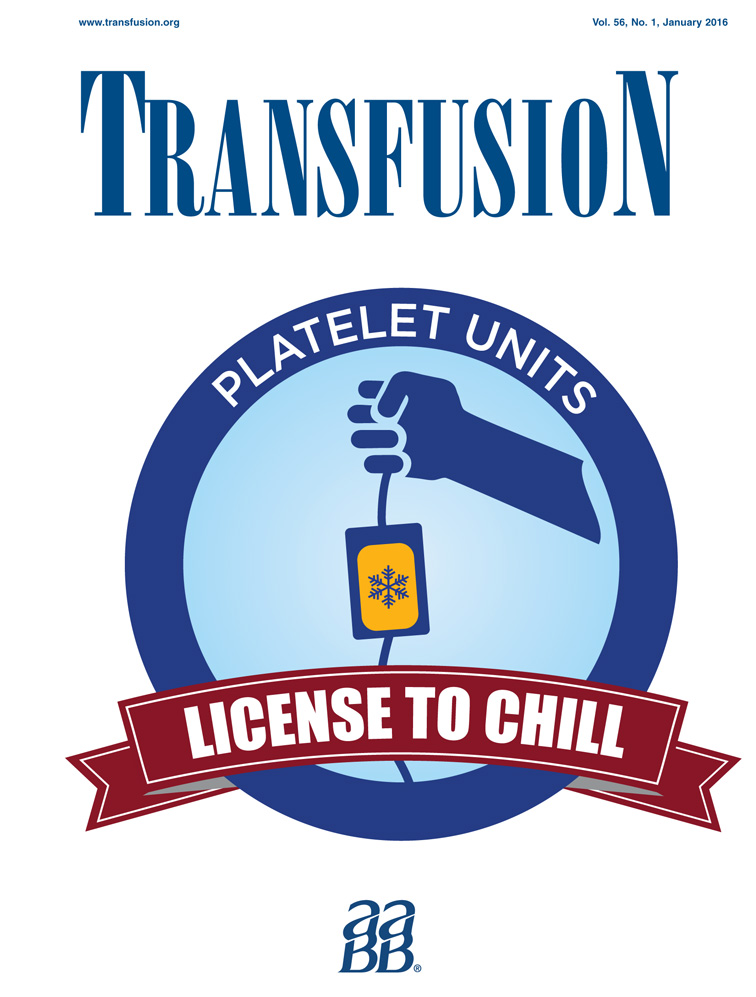Pretransplant platelet transfusion refractoriness is not associated with platelet nonengraftment in T-replete hematopoietic progenitor cell transplantation for hematologic malignancies
Abstract
BACKGROUND
Cellular engraftment after allogeneic hematopoietic progenitor cell transplantation (HPCT) can be affected by pre-HPCT antibodies against donor human leukocyte antigen (HLA; donor-specific antibodies [DSAs]), which are commonly acquired by either pregnancy or transfusion. Issues regarding high assay sensitivity and variable interpretation limit routine screening for DSAs. Platelet (PLT) transfusion refractoriness (PTR) is relatively common in patients with hematologic malignancies, and anti-HLA alloantibodies can be identified in up to 20% of cases. For patients with PTR undergoing subsequent allogeneic HPCT, however, the effect if any on subsequent PLT nonengraftment is unknown.
STUDY DESIGN AND METHODS
We conducted a retrospective study of 480 adults who underwent T-replete HPCT for hematologic malignancy and compared the posttransplantation clinical outcomes between patients who were PTR before HPCT and those who were not.
RESULTS
Multivariate analysis demonstrated that PTR was not directly associated with PLT nonengraftment or graft failure, but did predict for early intensive care unit admission, which was the only variable associated with these outcomes (p < 0.0001).
CONCLUSION
Our findings suggest that PTR before HPCT identifies patients at higher risk of early clinical rather than immunologic complications.




